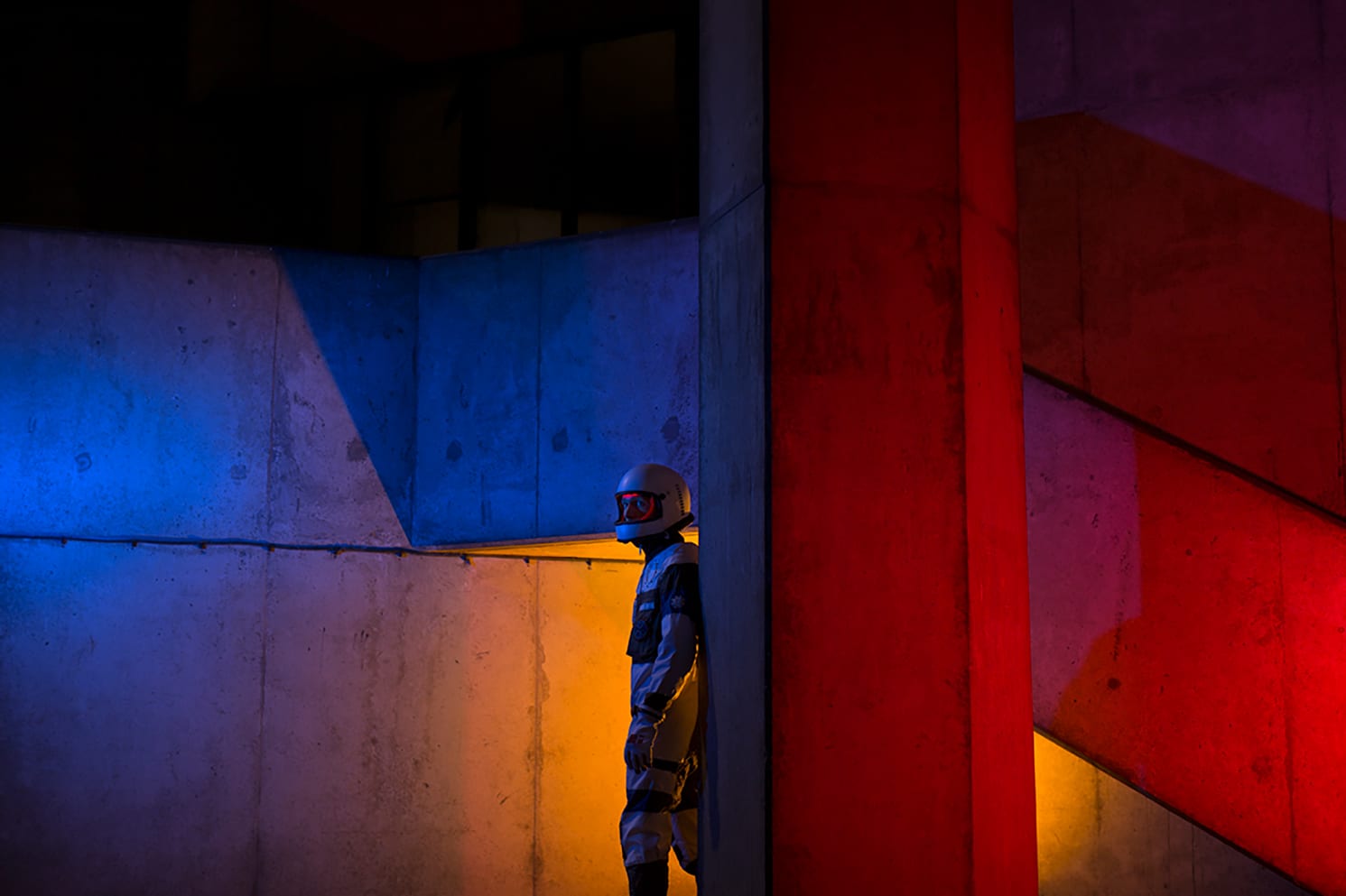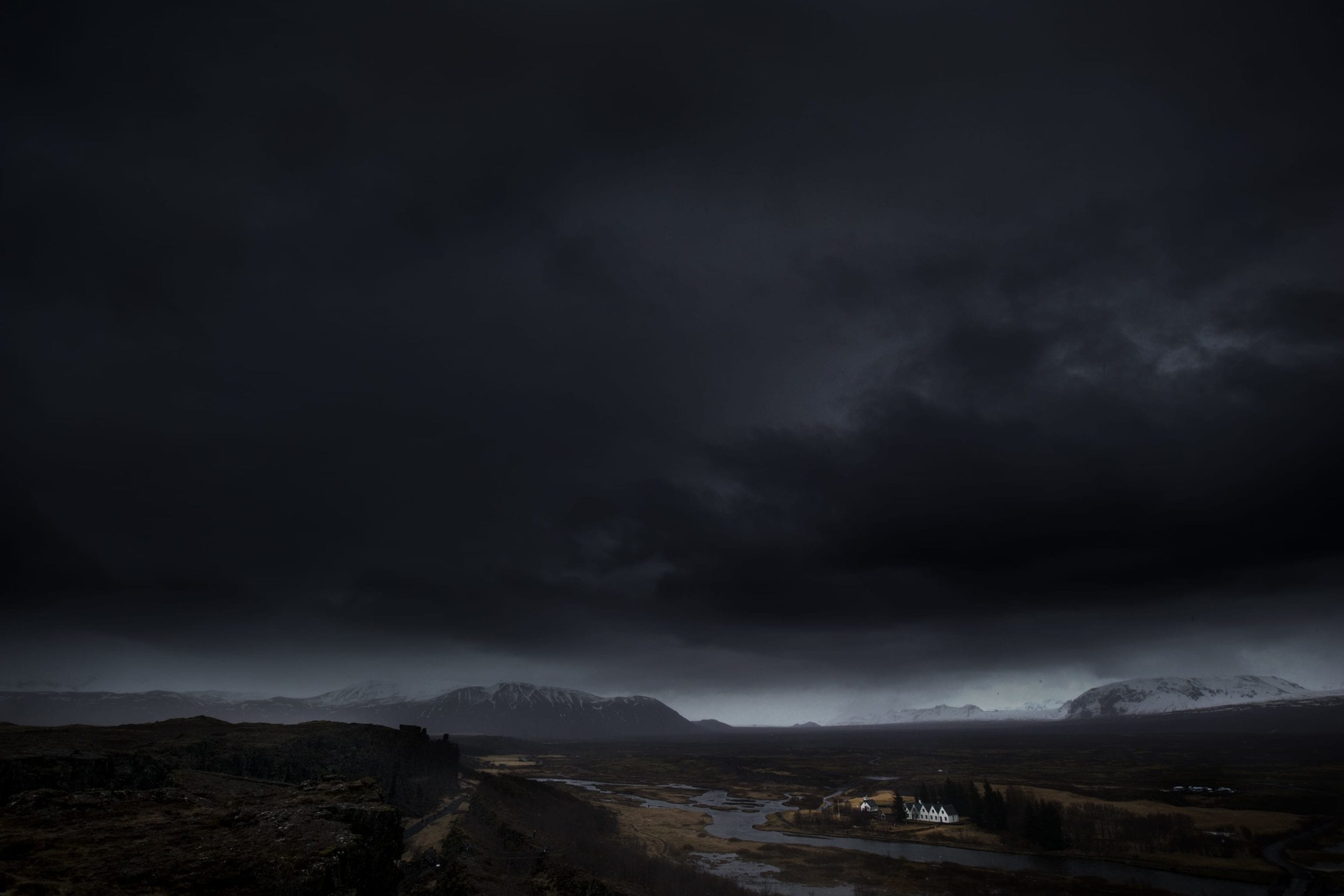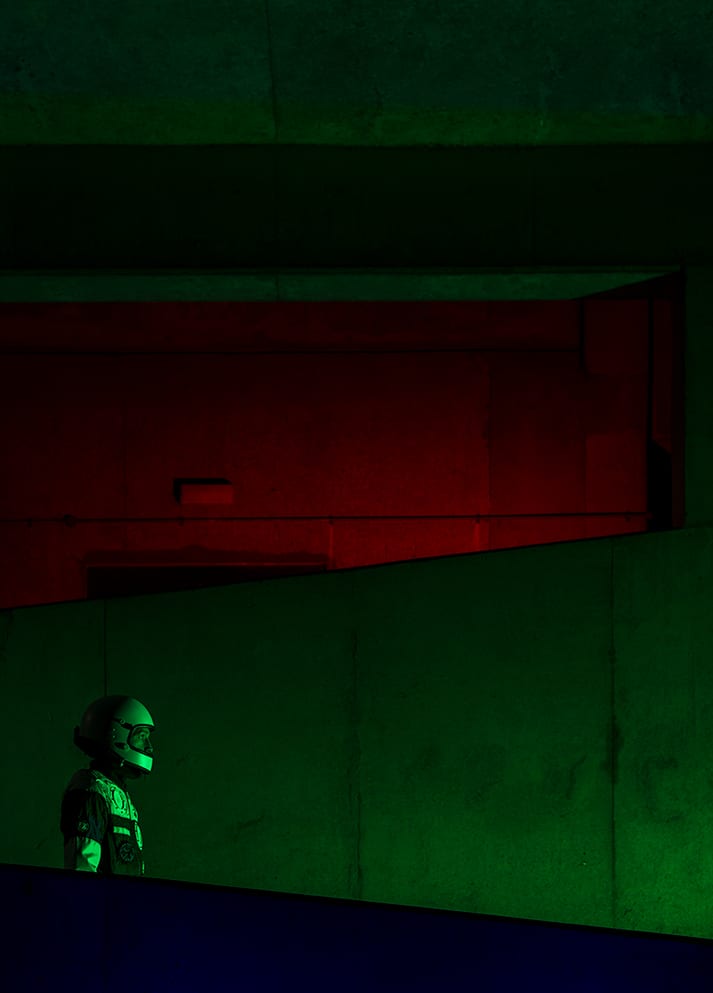“We have 50- graduates a year and their final portfolios are all so distinct that I can tell whose is whose without even looking at the names,” says James Smith, course leader of Norwich University of the Arts’ Photography BA. Dedicated to reinventing the traditional photography degree, the course places an emphasis on individuality and encourages students to develop their own visual voice alongside professional levels of production.
In a world saturated with images, developing a distinctive photographic style is more important than ever. The degree at Norwich provides that crucial space for experimentation: a place to explore the discipline without the pressures and limitations of the working world. “Encouraging individuality exists at the core of everything we do,” explains Smith, “it is one of the most vital skills for achieving success in the photography world today.”
 © Hannah Gordon-Smith
Ranked as one of the UK’s top 10 universities for teaching quality in the The Times and The Sunday Times Good University Guide 2018, NUA’s Photography BA equips students with the necessary skills to translate their personal aesthetic into an industry context. “We’re interested in the synergies between personal practice – that space where you create the images that interest you – and professional practice, where the images are produced to the highest standards,” says Smith.
© Hannah Gordon-Smith
Ranked as one of the UK’s top 10 universities for teaching quality in the The Times and The Sunday Times Good University Guide 2018, NUA’s Photography BA equips students with the necessary skills to translate their personal aesthetic into an industry context. “We’re interested in the synergies between personal practice – that space where you create the images that interest you – and professional practice, where the images are produced to the highest standards,” says Smith.
Carefully-designed assignments encourage students to rethink the photographic medium through engaging with subjects that they are passionate about. “This is what clients are interested in – it is individual and exciting,” says Smith. This is supported with an understanding of how each individual’s work can be applied across a broad range of genres. As a result, graduates work at the highest levels of professional practice – winning commissions because of their unique visual approach.
 © Leoni Lessmann
Another innovative feature of the teaching at NUA is the calibre and variety of visiting lecturers from industry. With more than 20 guest speakers each year, students are given an invaluable insight into the photography world. Photographers working at all levels are invited to speak: from established practitioners including Tim Flach and Andy Earl, to successful graduates like Denisa Ilie and Joe Barratt as well as photographic producers, agents, CGI artists and retouchers. “These lectures show that there are other avenues within photographic practice to go down; not all of our students want to become photographers on finishing,” says Smith.
© Leoni Lessmann
Another innovative feature of the teaching at NUA is the calibre and variety of visiting lecturers from industry. With more than 20 guest speakers each year, students are given an invaluable insight into the photography world. Photographers working at all levels are invited to speak: from established practitioners including Tim Flach and Andy Earl, to successful graduates like Denisa Ilie and Joe Barratt as well as photographic producers, agents, CGI artists and retouchers. “These lectures show that there are other avenues within photographic practice to go down; not all of our students want to become photographers on finishing,” says Smith.
 © James Smith
A photographer himself, Smith’s personal work explores the environment and our place within it. He recently travelled to Iceland to pursue his interest in the man-altered environment. Visiting the sprawling National Park, Thingvellir, Smith photographed Althing, the National Parliament of Iceland, which was established at the site in 930 AD. The team of lecturers who teach-day-to-day are also photographers. Their work focuses on an array of interests, ranging from the environment and landscape, to geography, people and animals.
© James Smith
A photographer himself, Smith’s personal work explores the environment and our place within it. He recently travelled to Iceland to pursue his interest in the man-altered environment. Visiting the sprawling National Park, Thingvellir, Smith photographed Althing, the National Parliament of Iceland, which was established at the site in 930 AD. The team of lecturers who teach-day-to-day are also photographers. Their work focuses on an array of interests, ranging from the environment and landscape, to geography, people and animals.
Smith and his colleagues are also keen to engage the next generation of photographers with the industry. Inspired by Tim Flach’s recently released book Endangered, alongside the photographer the department have developed a competition, Beyond the Frame, inviting GCSE and Further Education students to submit work exploring the environment. “We are looking for submissions that interpret the theme in imaginative and experimental ways,” he says.
 © Sophie Hayward
Equipping students with the tools to realise their vision is another central element of the BA. “We place a great deal of emphasis on technical and craft skills so students understand the medium in which they are working, and are able to manipulate that in order to produce images to the highest possible standards,” says Smith. Armed with a unique visual approach and the confidence to execute it, graduates are well-prepared to keep pace with ever-changing industry practices.
© Sophie Hayward
Equipping students with the tools to realise their vision is another central element of the BA. “We place a great deal of emphasis on technical and craft skills so students understand the medium in which they are working, and are able to manipulate that in order to produce images to the highest possible standards,” says Smith. Armed with a unique visual approach and the confidence to execute it, graduates are well-prepared to keep pace with ever-changing industry practices.
The effectiveness of this approach is evident in the work that students produce. From visual and conceptual approaches, to projects that are documentary in nature, the array of interpretations of the medium are evidence of the course’s rejection of any house style.
 © Alex Foxley
This emphasis on individuality has produced a roster of alumni who have gone on to achieve great success in the industry, with nine out of ten graduates in employment six months after graduation. Course alumni include, Lee Kirby who photographed the album cover for London Grammar and Denisa Ilie, whose work features in the publication Timeless: A Century of Iconic Looks.
© Alex Foxley
This emphasis on individuality has produced a roster of alumni who have gone on to achieve great success in the industry, with nine out of ten graduates in employment six months after graduation. Course alumni include, Lee Kirby who photographed the album cover for London Grammar and Denisa Ilie, whose work features in the publication Timeless: A Century of Iconic Looks.
Application to the course is by portfolio and interview, but Smith is keen to stress that at this stage it is a potential student’s ideas and goals that matter most. “Technical proficiency can be mastered,” he explains, “what we are looking for is a unique and thoughtful outlook on the medium and a dedication to developing that through the exploration of individual interests and passions.”
The BA Photography course at Norwich is now open for applications. For more information, please visit the BA website.
 © Hannah Gordon-Smith
Sponsored by Norwich University of the Arts: This feature was made possible with the support of Norwich University of the Arts. Please click here for more information on sponsored content funding at British Journal of Photography.
© Hannah Gordon-Smith
Sponsored by Norwich University of the Arts: This feature was made possible with the support of Norwich University of the Arts. Please click here for more information on sponsored content funding at British Journal of Photography.







